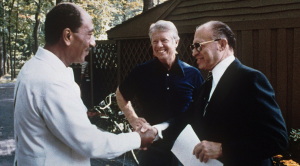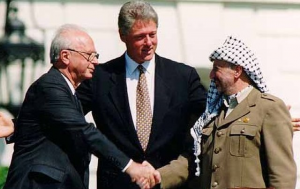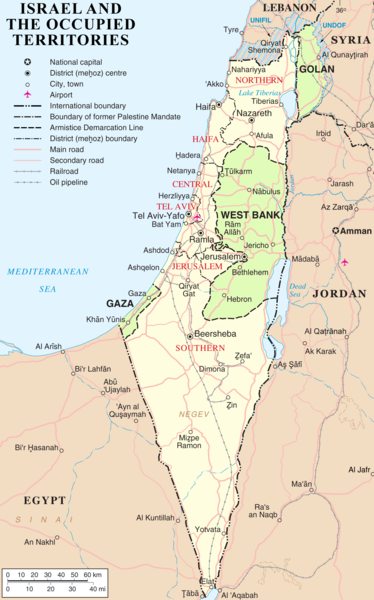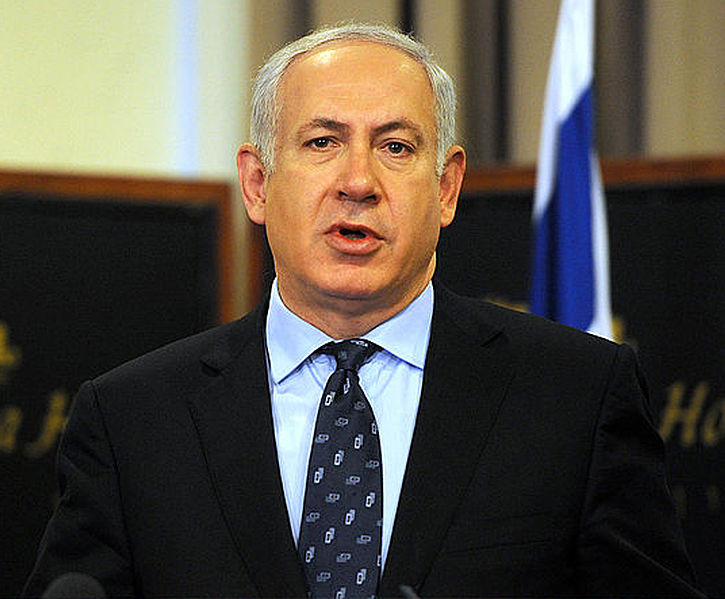 There is a great interview in the New York Times with Egyptian President Mohamed Morsi, and I encourage everyone to read it. Egypt has a very complicated and pivotal role in the region, and with the United States. Since their treaty with Israel, the U.S. has given Egypt over $1 billion a year in financial aid, and either in turn or simply by happy coincidence they have been a moderating influence in the region. Of course, we were giving money to a government that was not democratically elected, and whose policies towards Israel were not popular.
There is a great interview in the New York Times with Egyptian President Mohamed Morsi, and I encourage everyone to read it. Egypt has a very complicated and pivotal role in the region, and with the United States. Since their treaty with Israel, the U.S. has given Egypt over $1 billion a year in financial aid, and either in turn or simply by happy coincidence they have been a moderating influence in the region. Of course, we were giving money to a government that was not democratically elected, and whose policies towards Israel were not popular.
President Morsi takes America to task. He says that we need to change, and that we need to not ignore the suffering of Palestinians. I agree. We have not done a good service to the Palestinians. Mr. Morsi views that the promise of the Camp David Accords has not been fulfilled. He further accuses us of interfering with the region with our foreign aid polices, while at the same time noting our support for the Arab Spring. This man is clearly positioning himself as the spokesman for the region, and he has pretty good street creds to do it. Furthermore, he is the democratically elected leader of a region where previously the only country to have one was Israel.
On the other hand, we are not the only ones who need to change. Each society in that region needs to recognize Israel’s right to exist, and that American values preclude us from prosecuting someone for their views about Islam, whether or not we like their views. Mr. Morsi does not address this. His failure to immediately condemn the invasion of our embassy as well as his failure to call out problems within the region, means that he himself must come to terms with what it means to be a leader. In the immortal words of Albus Dumbledore, it’s easy to stand up to your enemies, but standing up to your friends takes true courage. Furthermore, there are some regional values that we ought not stand for, and one of them is the poor treatment of women. On the one hand, he says that woman should be allowed to run for public office, but on the other hand, being a product of the Muslim Brotherhood, he implies that he himself wouldn’t vote for one. For the region, this is radically liberal.
The question for The Obama Administration is how to deal with this man of contradictions. It seems to me that the U.S. should make clear two things:
- First, what conditions need to exist for the Palestinians to achieve their goal, and that Hamas’ violent views do not meet those conditions. Egypt has an especially important role to play here. While they are in a good position to support the Palestinians’ aspirations, Mr. Morsi can say, “you have us until you are violent.”
- Second, our fundamental freedoms as articulated in our Constitution are not negotiable, and we will not treat with people or their representatives who threaten Americans or our diplomats, simply because someone said something they didn’t like.
Honesty in a relationship demands that divisions need to be exposed before they can be healed. The biggest question we should be asking ourselves is what the American aid we are giving is going to. Mr. Morsi clearly resents the aid we gave to his predecessors. What, then, does it mean to provide Egypt aid today?
Finally there must be follow-through on our part. If we say we’re going to do something, we must do it. If Palestinians meet the conditions to create their own state, we must support this position. Mr. Morsi is pointing out that at this time, nobody in the Middle East views the U.S. as an honest broker between Israel and the Palestinians, and that needs to be corrected – both the perception and the underlying reasons.


 I love
I love  While there has been very little news of formal progress between the Israelis and the Palestinians, until this week there had been modest informal improvements day to day in the West Bank, at least. Why now, then, did Hamas decide to escalate in southern Israel? The answer can be found in the protests occurring in Egypt, and the new government of
While there has been very little news of formal progress between the Israelis and the Palestinians, until this week there had been modest informal improvements day to day in the West Bank, at least. Why now, then, did Hamas decide to escalate in southern Israel? The answer can be found in the protests occurring in Egypt, and the new government of  By escalating the violence, Hamas hopes to elicit a reaction from Israel that would stoke people in Egypt to press Mr. Morsi to abrogate
By escalating the violence, Hamas hopes to elicit a reaction from Israel that would stoke people in Egypt to press Mr. Morsi to abrogate  This fits a pattern that the Palestinians have been attempting for the last year: rather than come back to the table, they would prefer to see international pressure exerted on Israel, and the more the better. Firing rockets toward Jerusalem has therefore pushed the government of
This fits a pattern that the Palestinians have been attempting for the last year: rather than come back to the table, they would prefer to see international pressure exerted on Israel, and the more the better. Firing rockets toward Jerusalem has therefore pushed the government of  In the meantime, Palestinian Authority President Mahmoud Abbas has had to cut short his world tour, where he has pushed the countries to elevate the status of Palestine to observer state. This has many implications in both political terms and International legal terms, and would represent an attempt at an end run around a bilateral solution. It would provide Palestinians legal claims to sovereignty of their territory. Those claims would do the Palestinians little good in the short term, as Israeli tanks roll across Gaza, and all for the veiled hope that they will somehow come out better (and Israelis worse) thanks to Egypt coming into a war on their side, perhaps bringing others with them.
In the meantime, Palestinian Authority President Mahmoud Abbas has had to cut short his world tour, where he has pushed the countries to elevate the status of Palestine to observer state. This has many implications in both political terms and International legal terms, and would represent an attempt at an end run around a bilateral solution. It would provide Palestinians legal claims to sovereignty of their territory. Those claims would do the Palestinians little good in the short term, as Israeli tanks roll across Gaza, and all for the veiled hope that they will somehow come out better (and Israelis worse) thanks to Egypt coming into a war on their side, perhaps bringing others with them. Yes, the headlines from Al Jazeera read, “
Yes, the headlines from Al Jazeera read, “